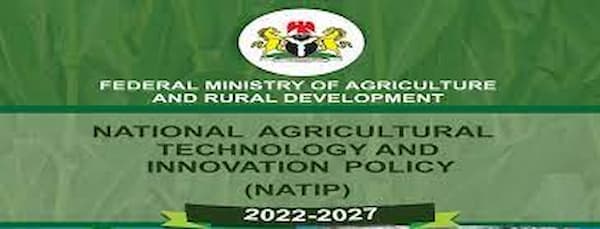To boost agribusiness in the country, the Federal Government (FG) has launched a six-year National Agricultural Technology and Innovation Policy (NATIP) from 2022 to 2027.
The six-year policy aims to achieve long-term development of national technological and innovative capacity in order to accelerate import substitution.
Speaking at the inauguration in Abuja on Friday, Mohammed Abubakar, Minister of Agriculture and Rural Development, said the policy was needed in particular to prioritize the reduction of rice, dairy, and fish imports.
He went on to say that it also aims to boost resilience and digital agriculture, thereby encouraging agricultural investments.
“This is a response to the present administration’s agenda of diversifying the nation’s economy from petroleum oil-based to agriculture and solid minerals-driven national development strategy,” he said.
“This would empower small-scale farmers to adopt new technologies and best practices for enhanced production, processing of agricultural commodities for local consumption, and export to other countries.
“The focus of the new NATIP 2022- 2027 was premised on the 10 thematic areas of stakeholders’ synergy and alignment, knowledge creation and transfer, rapid mechanisation, and agricultural development fund establishment.
“Others are, extension service delivery revitalisation and livestock development, priority crop value-chain strengthening, fisheries and aquaculture.
“Also included, marine and inland fisheries development, market development, and agriculture land investments partnership.”
However, Abubakar stated that the agricultural promotion policy of 2016-2020 had shaped the ministry’s operations over the last six years.
He stated that the 2016-2020 framework facilitated a significant increase in agricultural production and job creation in the country through infrastructure, research, extension, mechanization, and value-chain activities.
“The ministry sustained all various initiatives for the development of the agriculture sector; the issue of embracing technology and innovation became inevitable for transforming the nation’s agricultural system,” he added.
Women and youth, according to Bedru Balana, country programme leader at the International Food Policy Research Institute (IFPRI), should be mainstreamed across agricultural value chains, within the framework of innovation and enterprise.
“This is crucial as Nigeria continues to focus on creating jobs through agriculture for its growing youth and vulnerable population in the face of the current economic and environmental sectors, and climate shocks among others,” he said.













